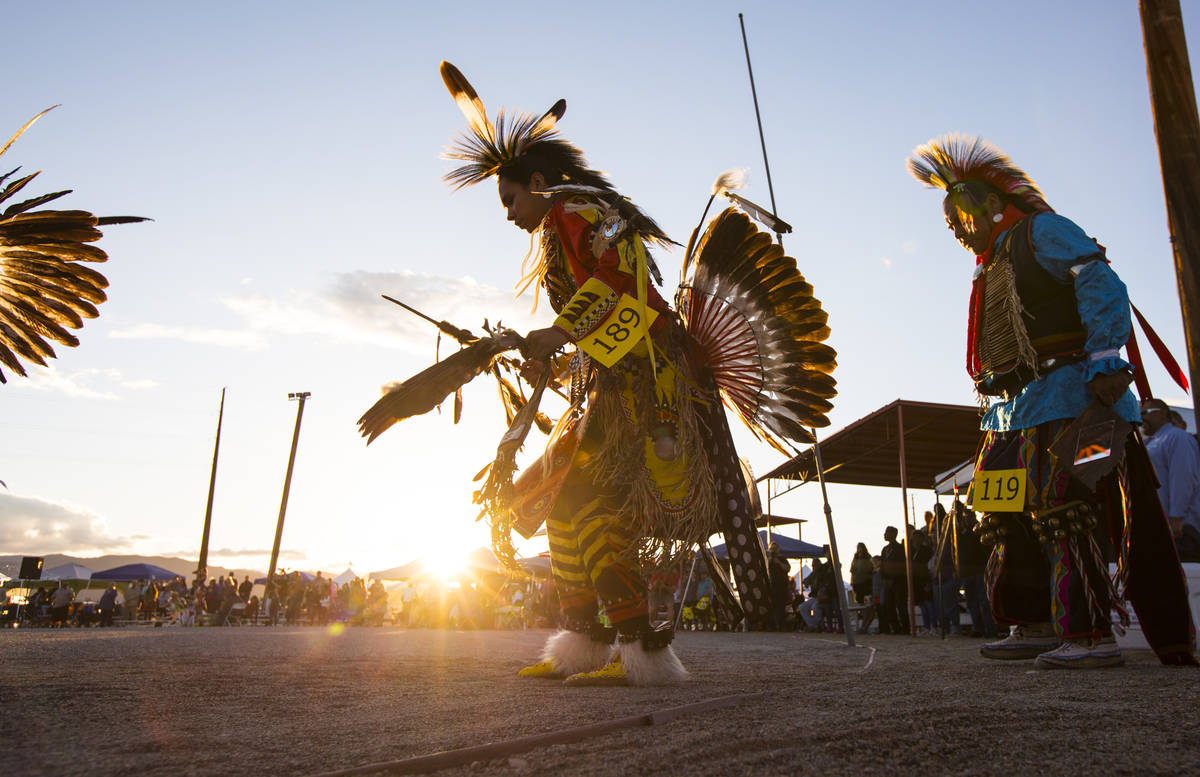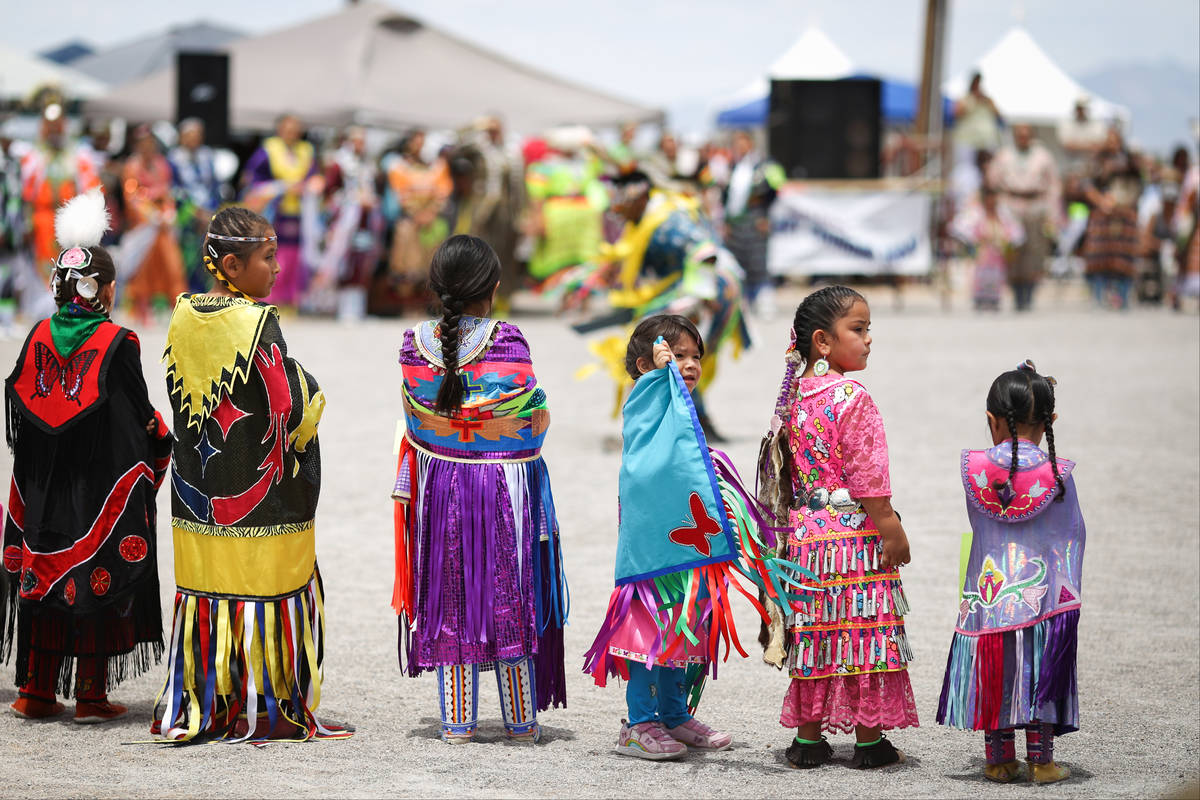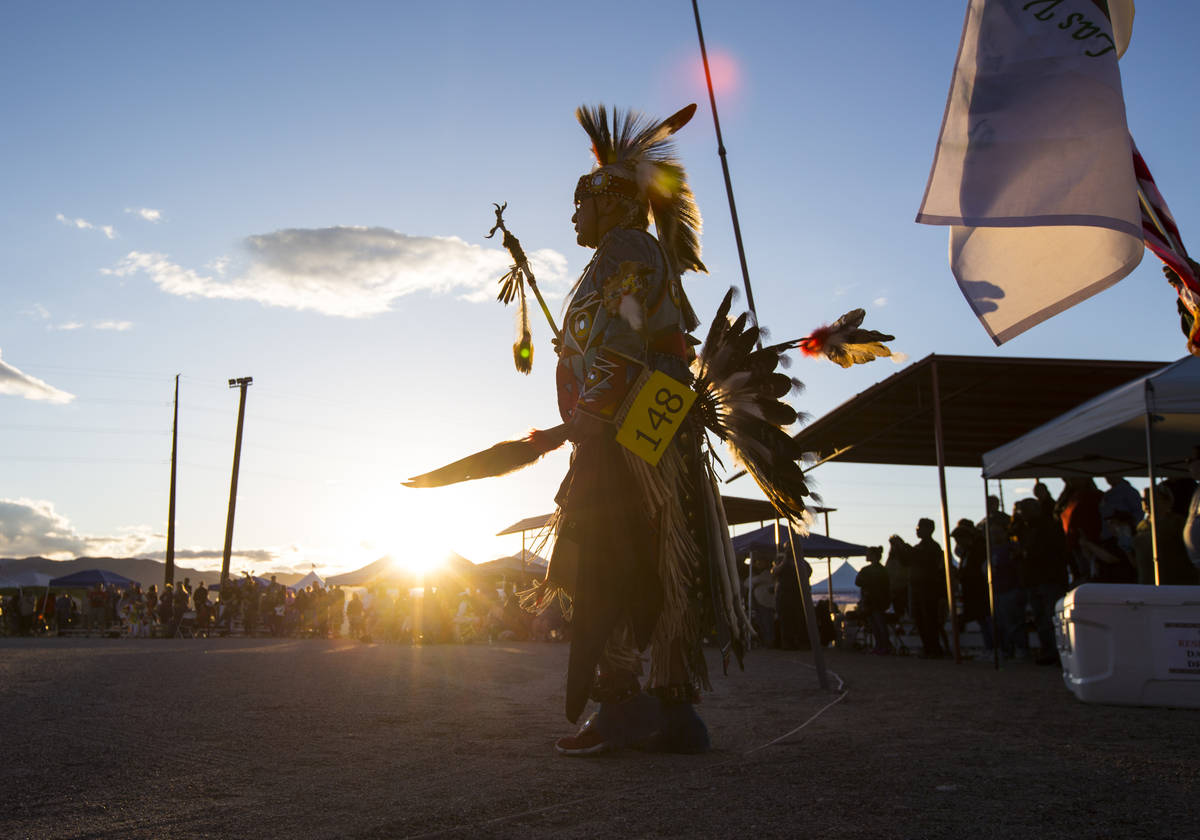Las Vegas wants to expand. So does the Paiute Tribe.
Las Vegas officials want to create a master-planned community on federal land in the far northwest, the main area of the city where large-scale development is still seen as possible since much of the rest of the city is landlocked.
The proposed project would sit immediately east of the Las Vegas Paiute Tribe’s Snow Mountain Reservation, which the tribe has owned for nearly four decades and wants to greatly expand.
But the city and tribe’s objectives are not at odds.
In a rare agreement reached earlier this month, the city and tribal councils set forth a sweeping policy plan that outlines intentions for proposed development, including in areas north of Moccasin Road along the Highway 95 corridor and east to North Durango Drive.
The tribe and the city also acknowledged that the tribe’s support is predicated on federal action to add more than 3,800 acres of public lands to the Snow Mountain Reservation.
The tribe says that restoring its ancestral lands to the north will be consistent with recent expansions for other Nevada tribes and will serve to mitigate effects of proposed development directly south and east of its territory.
“We thought if we could wrap this all up in an agreement, it sort of sets our course for the future,” said Tom Perrigo, the city’s chief operations and development officer. “As a partner with the tribe, we are happy to support their interests.”
Expansion consistently sought
Nearly doubling the 4,000-acre Snow Mountain Reservation has been a longtime goal for the Paiute Tribe.
Three different Paiute tribal government administrations have advocated for an expansion in talks with Nevada’s congressional delegation over the past five years, the tribe said in a statement.
When Congress created the Tule Springs Fossil Beds National Monument in 2014, a few miles southeast of the reservation, the tribe supported it to protect the cultural significance of the vast area. But the legislation also allowed federal land east and adjacent to the reservation to be developed, which the tribe said it did not know until after it had passed.
“Although we may have offered a different perspective about the release of lands contiguous to our reservation through previous legislation had we been consulted, we, nevertheless, committed to work with the City of Las Vegas on a plan that meets the needs of all parties,” the tribe said.
The most recent public lands bill moving through Congress — the Southern Nevada Economic Development and Conservation Act — does not include expanding the Snow Mountain Reservation.
Sen. Catherine Cortez Masto, D-Nev., who introduced the bill in the Senate, vowed to collaborate with fellow members of the Nevada congressional delegation “to support economic development opportunities” for the tribe, whether through federal legislation or other means, she wrote in a letter last month to Tribal Council Chairman Curtis Anderson.
Cortez Masto is still reviewing the details of the agreement between the tribe and the city but supports their efforts, according to a spokesperson for the senator. She is also hopeful that the agreement could be incorporated into her bill as it moves through Congress, the spokesperson said.
The tribe said it had been “assured” by bill sponsors that they were committed to working with the tribe and the city to expand the reservation through the legislative process. And the tribe said it has accepted that pledge in “good faith.”
Meanwhile, the city says it will also support such efforts to increase the footprint of the reservation.
Deal ‘significant’ and ‘unique’
The agreement between the tribal and city councils defines the conditions for moving the city’s 940-acre residential project forward, such as restricted building heights to avoid obstructing views, and rolling berms and landscape to buffer the project with the tribe’s golf resort on the eastern boundary of the reservation.
The intergovernmental agreement also calls for a roughly 1,000-acre job creation zone on tribal land to be leased by the city, a new U.S. Highway 95 interchange on the reservation and a 130-foot renewable energy corridor adjacent to the tribe’s southern boundary, according to a copy of the plan.
“This agreement represents a significant though initial step to accommodating the need for future housing and retail development in the Las Vegas Valley while aiming to preserve the viewshed of the Tribe’s resort properties,” the tribe said.
While the two governments routinely cooperate on issues such as infrastructure and planning — the tribe also owns land downtown — Perrigo said that most efforts do not require a formal deal between both councils.
With many moving pieces and multiple entities involved, the project will require a multi-year process, according to Perrigo.
“This is certainly a very significant agreement that is unique for the city and the Las Vegas Paiute Tribe,” he said.
Contact Shea Johnson at sjohnson@reviewjournal.com or 702-383-0272. Follow @Shea_LVRJ on Twitter.




















